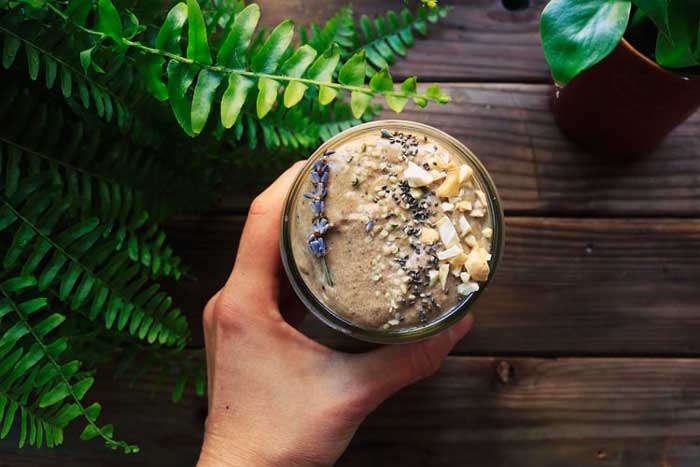Gluten-free diet was a major diabetic cry until other healthy eating trends took over (you remember raw foods, keto, etc.). Meanwhile, it’s still a moot question what exactly gluten does to the stomach. Mostly it is believed that a number of people do have gluten sensitivity, and celiac disease does require medical attention. But even people who are not noted for negative bodily reactions to gluten can be better off with less of it (or not at all) in their diet.
Joints might ache less
Those with intolerance to gluten or celiac disease, when intaking too much gluten, can develop inflammations that feel like ache in joints. Should they then avoid gluten, arthritic symptoms tend to ease up some.
Your skin might start looking better
Gluten, constituting inflammation risk, can also affect the skin. Such conditions as dry skin, psoriasis, eczema, acne, and some others could be aggravated or triggered by too much gluten. Therefore, going easy on gluten-rich food, you might discover your skin issue gets better.
Overall condition might become better
Some of those who decided to ditch gluten might find that it eventually it improves their condition: they feel more energetic, their headaches and stomachaches let up, and so on. While it is not scientifically proven, it leaves little doubt that people begin to feel better if they take up healthier eating habits and exchange gluten-rich foods for fruits, vegetables, whole grain foods and other kinds of recommended products. Besides, you would do well to write down your meals and your condition after the meal so you can let your body indicate the products that make you feel fine.
The Risks of Going Gluten-Free

It’s true that a lot of people don’t need to walk in fear of gluten which doesn’t affect them as adversely as it is often bruited; doctors are also unlikely to scare you off your gluten just because such a diet exists. Still, about 0.75% of Americans are gluten-sensitive, and for them avoiding gluten is a must. But when you effect a radical change in your nutrition, there may be side effects you haven’t bargained for. Some of them are listed below.
Immunity may weaken
The body requires B vitamins which are necessary for many functions, including that of the immune system and providing a sufficient energy level. Now B vitamins can be intaken with cereals and fortified bread, but you don’t eat these if you keep to a gluten-free diet. Now it may lead to developing a deficiency. If you suspect you are low on the vitamin, get a relevant supplement or a multivitamin to get you through – it’s all the more important for women who intend to conceive or are already pregnant, because B vitamin deficiency increases the risk of problems during birth.
Cravings may assert themselves
It’s yet up to science to find proof that eating gluten-free is conducive to dropping weight. So people who decided to go easy on gluten or go without it at all with no obvious medical reasons can experience some of the effects caused by dieting, like preoccupation over food, cravings, gluttonous bouts followed by guilt. Of course it isn’t all because of gluten lack, mostly the condition is due to self-restriction, but the fact remains: the body is working in another mode generating strong cravings and the desire to be stuffed with food.
You will be getting less protein for muscle building
Foods that contain gluten, compared to those that don’t, are also lower on protein – you’ll have to make up for it by including other protein-rich foods.
It might result in constipation

Pasta, whole wheat bread and many other gluten-packed products are also fiber-rich. Unlike whole-grain foods, rice or quinoa pasta cannot boast so much fiber. That’s why there are so many people in America who don’t get enough fiber and find it difficult to come upon an alternative rich source of fiber to make up. Some gluten-free sources are beans and quinoa; they will help replenish the shortage and avoid undesirable complications such as heart diseases, diabetes, and chronic constipation.
The heart may be afflicted
There was a study in the British Medical Journal in 2017 which revealed that no-gluten meals might aggravate people’s cardiovascular condition. It might happen because those who try to get by without gluten tend to take not enough whole grains (or not at all), while the whole-grain based diet is definitely good for the heart. So it is worth your while to eat whole grains unless you have a bad case of celiac disease.
Blood sugar may be thrown off balance
The foods that have gluten are carbohydrates, so every time they enter the body the blood sugar goes up. Yet if you eat something else instead, the sugar level could be increased even more. Gluten-free processed products (special bread and suchlike baked products, pasta, pizza dough, and so on) have enough carbs to produce the same effect in terms of blood sugar level. You will need to get more proteins and healthy fats to ensure your blood sugar remains stable.
It may bring on a feeling of loneliness

People who stick to a restrictive diet are sometimes apt to feel distant from others. The problem of deciding what food to eat and what to decline gets people so flustered that it affects their relationship with people who prepare food as well as their behavior on social events where people partake of food.
It can result in weight gain
Those who are afflicted with celiac disease tend to lose weight for no apparent reason. Consequently gluten-sensitive individuals who try to get by without gluten may find their waistline get out of control – the more so with those who are laboring under the misapprehension that if you are on gluten-free diet, you can stuff yourself with food. To believe that if you eat healthy you can devour any amount of food disregarding the content of sugar, fat, and calories, means to be a bit too gullible. Don’t lower down your defenses.
It could be bowels-friendly

There is information to the effect that individuals who suffer from irritable bowels or recurring digestive problems could get relief eating gluten-free foods. It can happen because foods rich in gluten also boast FODMAPs – that is, fermentable oligo-, di-, and monosaccharides, polyols. In simple words it’s a certain type of carbohydrate which could be digested but poorly with some people. Once you go without FODMAP products (apart from gluten regard), you might find bloating, constipation, cramping, diarrhea, and some other conditions easing up on you.
It could mean a clearer head
A celiac-smitten person upon eating gluten often registers a foggy brain, that is, a sort of lethargy preventing clear thinking. It is not quite certain just how it comes around, mostly it hangs on the personal sensitivity of the individual, but there are enough records of the phenomena. You would do well to consult your physician, but the best thing is to see how your body reacts. Avoid gluten rich foods for several days – if your brain doesn’t fog out, you’re on the right track.











